The primary reason to buy commercial property revolves around increasing personal wealth and achieving professional goals. The same holds true when considering purchasing a residential property or investing in the stock market. But buying commercial property involves a potentially greater return on investment than flipping or renting residential buildings. And the lower risk is generally far more palatable than a sometimes unpredictable stock market.
Participating in the purchase of commercial property can also serve as more than just an investment, it can also provide a home If you base for a company. There are plenty of good reasons — on the surface — to buy commercial property. But before applying for a commercial real estate loan, due diligence tasks savvy individuals with looking beneath the surface before deciding if buying commercial property is for them.
Pros of Buying a Commercial Property as an Investor
If you decide to buy a commercial property strictly as an investment, that typically means you do not intend to stake out a physical presence in the building. Owning and operating a facility from a remote location allows investors to lease the entire usable space to tenants. That, in turn, maximizes the commercial building’s earning potential. These rank among other commonly enjoyed benefits of buying a commercial building as an investor.
- Monetary Benefits: Of course, profit is the first reason why anyone would want to invest in anything. And although there is typically a lot of it, you’ll want to make sure that your property appreciates its value over time. Take advantage of the tax incentives commercial property owners receive and put it towards the upkeep and maintenance of your property.
- Lease Terms: Fewer restrictions exist governing the operation of commercial rental properties. Although fair and ethical standards are built into state and federal laws, commercial landlords enjoy greater flexibility when establishing lease terms. This facet allows people who buy commercial property and set metrics that attract suitable tenants.
- Fewer Tenant Issues: In residential settings, the landlord-tenant relationship takes on personal aspects. But property owners who are not part of the commercial facility landscape have an opportunity to develop a business-to-business relationship with tenants. Keeping everything professional minimizes conflict and ownership stress.
Commercial property investors can also exercise options to outsource operational items such as security, landscaping, maintenance, and property management, among others. A business model that insulates an owner from direct contact allows them to make major decisions and deposit checks.

Cons of Buying a Commercial Property as an Investor
If no downside existed, every qualified investor would buy commercial property and sit by the side of a pool and deposit checks. Obviously, that is not the case, and there are a few good reasons why commercial property investment is not for everyone. Consider these potential drawbacks before applying for a commercial real estate loan and securing financing to buy commercial property.
- Upfront Costs: When you buy commercial property, the upfront expenses are typically higher than a residential building and do not come with the flexibility of stocks. The initial down payment generally runs between 15 and 35 percent, depending on the commercial real estate loan product. Add closing costs, taxes, and fees to the mix, and purchasing a commercial building may appear more expensive than an investor anticipated.
- Risk: When an investor decides to buy commercial property, it’s essential to understand these buildings may create heightened risk. Accidents, injuries, and unknown environmental hazards become a liability for property owners. It’s no secret that filing civil lawsuits against property owners have driven up insurance premiums. Beyond potential civil litigation, property damage from severe weather events or vandals can create financial hardships.
The notion of outsourcing building oversight to third parties usually reduces the stress and work hours associated with owning a commercial facility. But experienced professionals are not necessarily inexpensive. That means hiring a property management outfit, security detail, and other professionals will eat into your profits.
Pros of Purchasing and Occupying Commercial Space
One of the driving reasons business leaders decide to buy commercial property stems from their need to stop leasing space and settle into a secure location. Perhaps nothing provides stability like owning the building and renting out unused space to other organizations as a secondary revenue source. And while not worrying about a landlord raising the rent or deciding not to renew a lease feels comforting, there are wide-reaching benefits to owning and occupying a commercial space.
- Reduce or Eliminate Business Overhead: Depending on your business strategy, leasing space provides a steady revenue stream that can be used to lower overhead. Profitable rental income may allow you to reduce the cost of your operation or do business rent-free. This aspect of becoming an owner and occupant delivers tremendous flexibility in terms of investment, equipment purchase, and growth.
- Increase Equity: Rental incomes typically offset part or all of the commercial real estate loans used to buy the building. But once that revenue exceeds monthly installments and expenses, a portion can be re-invested. Renovations and expansion re-position those who buy commercial property to generate increased revenue, augment profitability, and grow equity.
- Cashing Out: The value of commercial real estate continues to climb, and property owners have the option of selling at an opportune time. One of the common strategies involves buying and holding commercial assets until loans are paid down and the market reaches a peak. It’s not unusual for savvy business minds to hold a building they occupy until retirement. Selling both the business and commercial property can make the golden years financially comfortable.
To discover how commercial real estate loans can help your business, download our free guide:
Cons of Purchasing and Occupying Commercial Space
Perhaps the greatest risk of buying a commercial building and occupying it involves getting stuck. Once you are approved for your commercial real estate loan and buy commercial property, your business and property fates are both joined. A natural disaster or severe weather event could shutter the building and your operation with it. Should your primary business outgrow the space, you may need to sell and start over again. Beyond the variety of ways an owner-occupier can be negatively impacted, these are other common problems.
- Tenants: People who buy commercial property and set up offices on-site tend to develop a landlord-tenant relationship similar to residential ones. That degree of personal connection can eliminate business-to-business professionalism. Essentially, tenant issues can become personal and distracting.
- Burdens: Being at the facility seems to place additional management and upkeep responsibilities on owners. The tenant community sees the same issues you do, and an expectation persists that you will take lead on solutions.
Every financial and life decision involves weighing the pros and cons in an effort to make an informed decision that works for you.
How to Finance and Buy Commercial Property
Commercial property investors typically need a cash down payment, sound FICO score, and reasonable business credit score among other documentation to secure a commercial real estate loan. Before heading to your trusted local lender, be sure to research what specific lender requirements surround a commercial real estate loan application and conduct due diligence regarding the type of commercial real estate loan that best fits your needs.
At Carolina Trust Federal Credit Union, we know that sometimes, you need a little extra money to maintain and grow your business, and we get it. Whatever it may be, don’t worry— we’ve got a loan for that.




